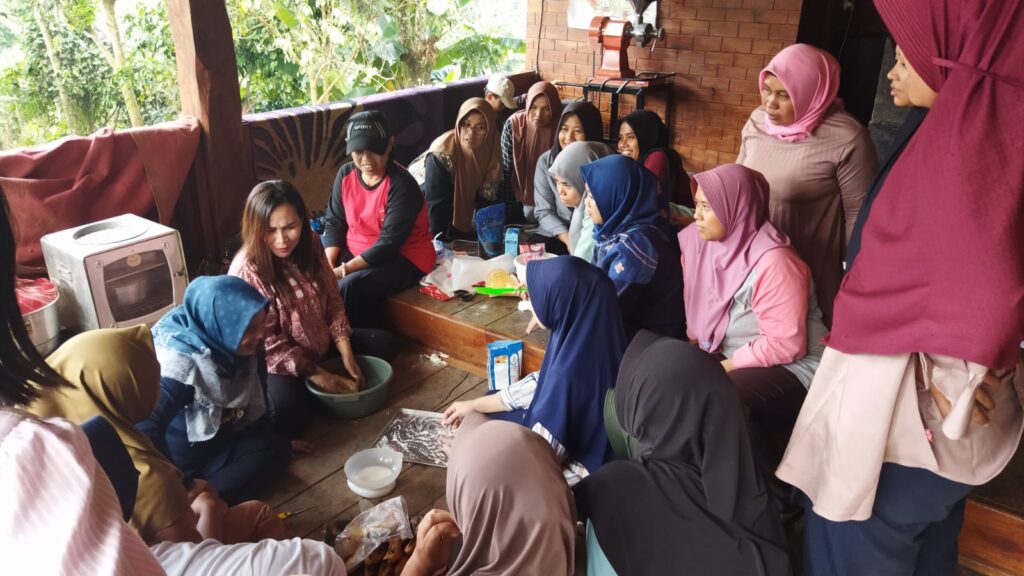Amid the diversity of Indonesia's natural potential, customary forests have become a source of life for local communities, including the Kasepuhan women's group in Lebak Regency, Banten. Realizing the important role of women's groups in managing and utilizing customary forest potential.
RMI-The Indonesian Institute for Forest and Environment is supported by Partnerships through the Estungkara-Inklusi program to provide economic training. This event aims to increase women's participation and build their abilities in managing economic businesses with the community, while at the same time encouraging community welfare in the region.
The economic training which lasted for three days, from 22 to 24 July 2023, was attended by representatives of women's groups from five Kasepuhan, namely Kasepuhan Pasir Eurih, Kasepuhan Cirompang, Kasepuhan Cibarani, Kasepuhan Cibedug, and Kasepuhan Bongkok. The total number of participants was 25 people, who were active in managing their respective businesses with various processed products made from the customary forests they had been managing.
One of the main objectives of this training is to increase the ability of women's groups to manage economic businesses together with the community. In this way, it is hoped that stronger synergy and collaboration can be formed in optimizing the sustainable use of customary forest potential. This step is key to strengthening the economic independence of the Kasepuhan women's group and improving the welfare of society as a whole.
During the training, participants were equipped with knowledge about how to build a group business through basic cooperative concepts and education, strengthening institutions and building self-confidence as driving forces in the community. It is hoped that these skills will help them face various challenges and take advantage of opportunities that arise in their respective communities. Apart from that, the training also provides practical sessions for making products in the form of cakes made from banana and cassava. This step is part of product diversification efforts to increase the economic value of the potential that is spread around them.
In order to realize sustainable use of customary forest resources, it is important for the Kasepuhan women's group to maintain local wisdom and traditional knowledge in forest management. This training seeks to support this step by combining modern knowledge about business management with local wisdom that has been proven to be effective for centuries.
RMI-The Indonesian Institute for Forest and Environment together with Partnerships through the Estungkara-Inklusi program made this training a form of joint commitment to encourage sustainable development in customary forest areas. By involving women's groups as agents of change, it is hoped that this step can have a significant positive impact, both for the environment and local communities.
In the midst of a patriarchal culture that is still strong in the management of natural resources and economic resources, the involvement of women's groups in customary forest management is becoming increasingly important. Their role as guardians of the environment and transmitters of local wisdom makes active and competitive involvement in economic endeavors very relevant. This economic training for the Kasepuhan women's group is a concrete step towards building a sustainable and better future, where the potential of customary forests can be optimized in a sustainable manner for the welfare of the community and the natural surroundings.
Not only focusing on economic aspects, this training also opens the door to broadening the horizons and social networks of the Kasepuhan women's group. By sharing experiences and knowledge, it is hoped that a conducive environment will be created for the growth of collaboration and innovation in facing various challenges and changes.


